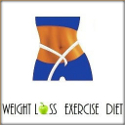-
Expecting? Nutrition During Pregnancy Guide
Saturday, September 6th, 2025by Lisa Young, Nutritional Counselor
For most women, becoming pregnant is one of the most important moments in life. To ensure a healthy baby, pregnant women must follow proper nutrition during pregnancy because the food they eat greatly affects the growth and development of the fetus.
 Pregnant mothers should eat healthy foods and follow proper dietary guidelines. In addition, they should refrain from unhealthy habits like smoking and drinking alcohol.
Pregnant mothers should eat healthy foods and follow proper dietary guidelines. In addition, they should refrain from unhealthy habits like smoking and drinking alcohol.Mothers who are pregnant should also take some moderate form of exercise like walking in order to maintain cardiovascular fitness. As long as you don’t overdo it, exercising moderately while pregnant can be good for both mother and baby.
Bear in mind that the baby will be inside your womb for nine months and that a variety of changes will take place – not only physically, but also emotionally and psychologically. For example, many pregnant women experience morning sickness along with food cravings and/or food aversions.
The fetus needs essential nutrients in sufficient amounts throughout the nine months of pregnancy. Women who are pregnant should have an understanding of the basic 5 food groups so that they can prepare and consume healthy menus for pregnant mothers.
Even if you don’t feel like eating, it’s important to not skip meals. Make sure to drink plenty of water each day, but avoid drinking coffee which contains caffeine. And of course, do not drink alcohol while pregnant!
Nutrition Basics for Pregnant Women
When it comes to the best diet for pregnancy, it’s one that is healthy and balanced. Be sure to drink milk to ensure that you have enough calcium in your body. Calcium intake should be in the range of 1,200 – 1,500 milligrams per day, taken from a variety of sources.
Calcium-rich foods to support proper pregnancy nutrition include ice cream, ice milk and calcium-fortified juices. Vegetables like broccoli, beans and kale, along with salmon, cheese, yogurt and skim milk are also excellent sources of calcium.
Folic acid is another very important vitamin necessary for the proper development of a baby’s spine and brain. Pregnant women are normally recommended to take from 400 – 800 micrograms (0.4 – 0.8 milligrams) of a folic acid supplement daily throughout their pregnancy period.
Foods to Avoid During Pregnancy
- While seafood can be a great source of protein, and the omega-3 fatty acids in many fish can promote your baby’s brain development, some fish and shellfish contain potentially dangerous levels of mercury. Consuming too much mercury while pregnant may do damage to your baby’s developing nervous system.
As a general rule, the larger and older the fish, the more mercury it is likely to contain. Both the FDA and the EPA therefore advise pregnant women to avoid eating fish like king mackerel, shark and swordfish.
It’s also important to stay away from raw, undercooked or contaminated seafood which may contain harmful bacteria or viruses. Specifically, avoid eating raw fish and shellfish like oysters and clams.
- During pregnancy, women are at an increased risk of bacterial food poisoning. To prevent food borne illness, it’s important to fully cook all meats and poultry before eating them.
- Raw eggs are at risk of being contaminated with salmonella, a harmful bacteria. Stay away from foods made with raw or partially cooked eggs (e.g. Hollandaise sauce, eggnog, raw cookie batter, and Caesar salad dressing).
- Low-fat dairy products like skim milk, mozzarella cheese and cottage cheese made with unpasteurized milk are to be strictly avoided. These products may carry certain food borne illnesses.
When buying eggs, look for the pasteurized variety. In addition, stay away from unpasteurized juices.
- Wash all raw fruits and vegetables thoroughly before eating. Avoid raw sprouts of any kind, including alfalfa sprouts, clover sprouts, radish sprouts and mung bean, as they might contain disease-causing bacteria.
- Avoid alcohol and caffeine while pregnant. Some studies suggest that drinking too much caffeine during pregnancy may be linked with an increased risk of miscarriage.
Similarly, mothers who drink alcohol have been shown to have a higher risk of miscarriage and stillbirth. Even moderate amounts of alcohol can impact a baby’s brain development.
Should You Take Prenatal Vitamins?
In the case of busy mothers who may have trouble eating a healthy diet, prenatal vitamins and supplements for pregnant mothers can help satisfy certain vitamin inadequacies. It may be wise to make an appointment with your doctor before you begin taking supplements while pregnant.
Natural vitamin sources for good pregnancy nutrition include beets, squash, cantaloupe, corn, and dark green leafy vegetables which contain substantial amounts of folic acid. Fortified breads and cereals, peanut butter, peanuts, tofu, dried beans should also be eaten.
Vitamin B-12 is an essential nutrient for the complete and proper development of a baby’s brain and nerve functions. Protein is also vital, and good sources of protein can be found in milk, eggs, cereals, legumes, and plant foods. Keep in mind that proper nutrition for kids begins before the baby is born.
If you buy a pregnancy cookbook, you will have access to a variety of delicious and nutritious menu plans. It’s also a good idea to read books about proper nutrition during pregnancy, or visit pregnancy websites in order to learn more about giving your baby the healthy nutrition it needs.
(published July 19, 2011)
- While seafood can be a great source of protein, and the omega-3 fatty acids in many fish can promote your baby’s brain development, some fish and shellfish contain potentially dangerous levels of mercury. Consuming too much mercury while pregnant may do damage to your baby’s developing nervous system.


